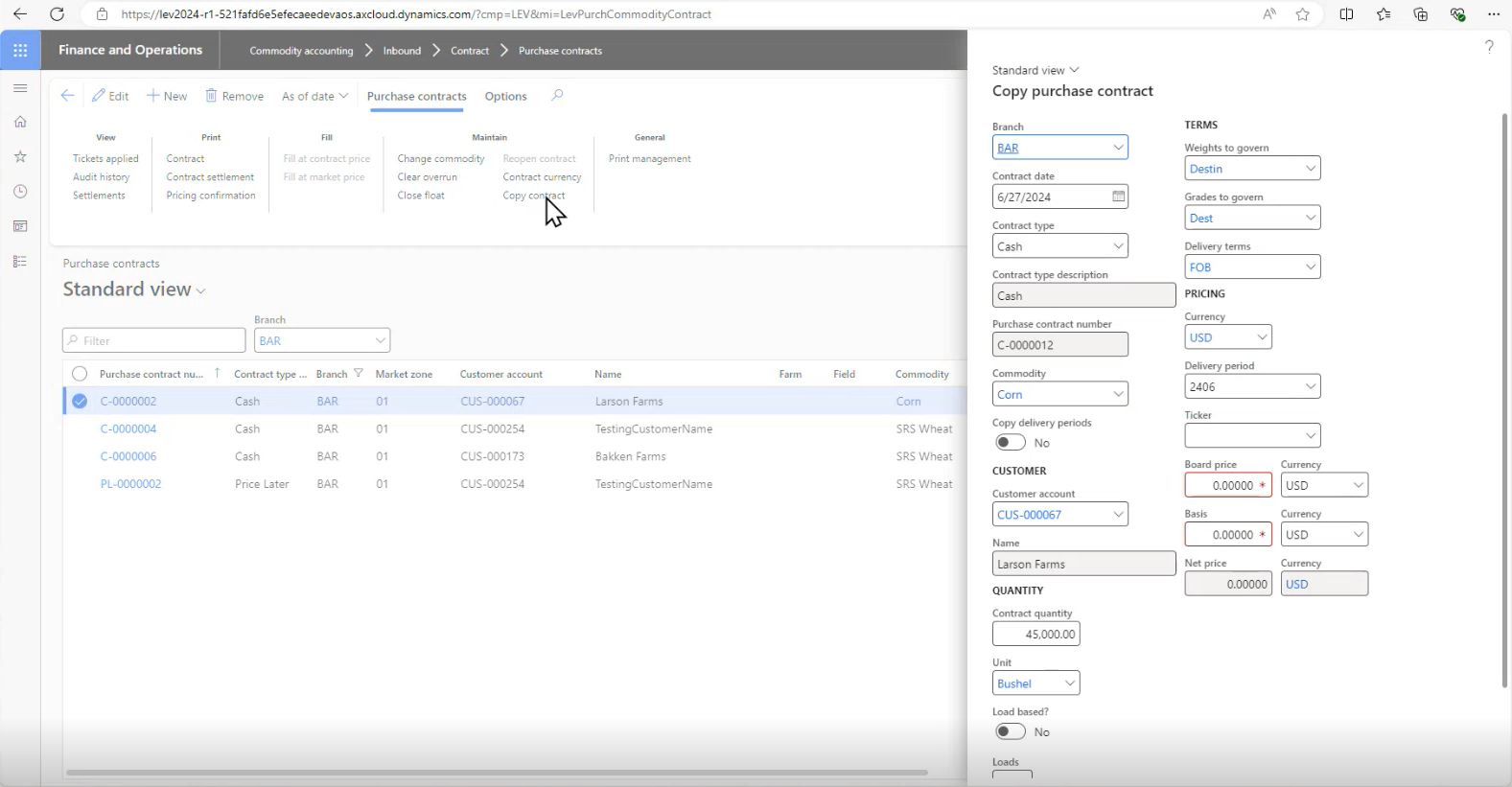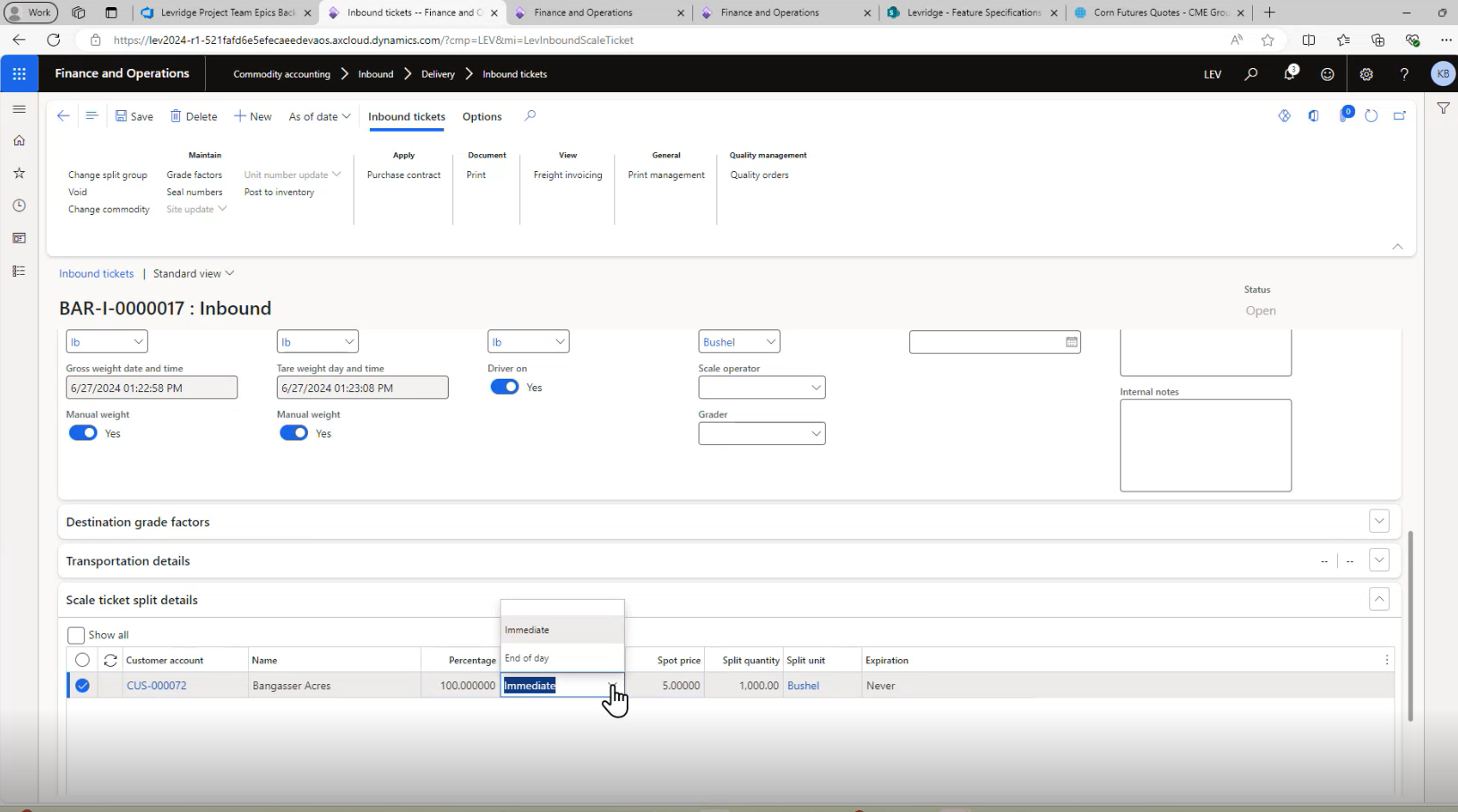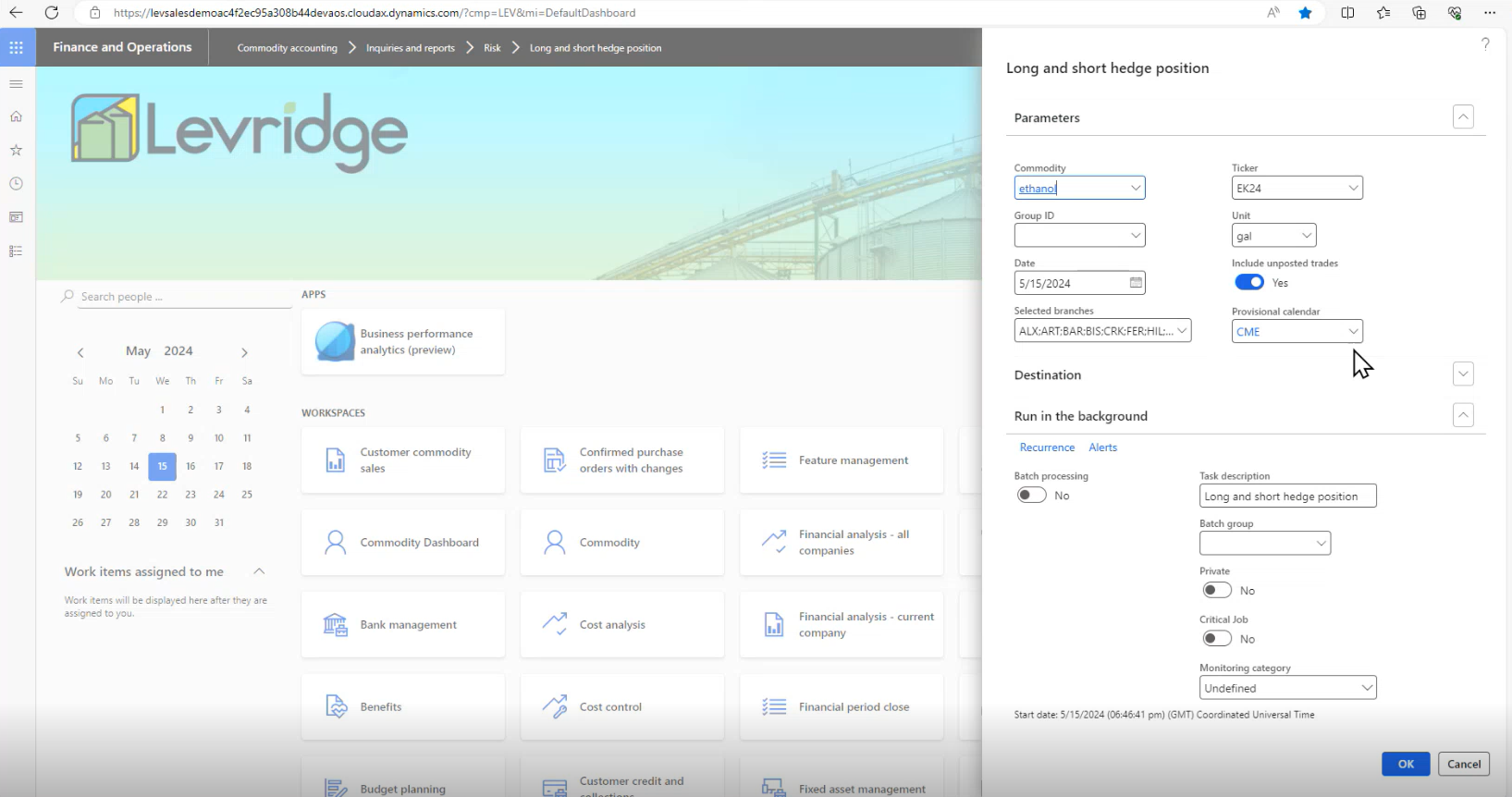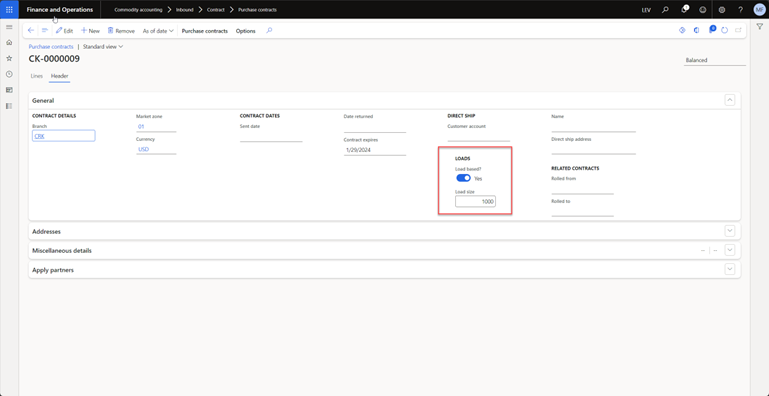
The new void futures trade feature provides users with the flexibility to manage trades effectively, correct errors, and maintain accurate records.[…]

The new void futures trade feature provides users with the flexibility to manage trades effectively, correct errors, and maintain accurate records.[…]

The Levridge 2024 Special Release 1.5 brings a powerful new feature to leverage commodity accounting: the ability to copy purchase contracts.[…]

The Levridge 2024 R 1.5 special release introduces significant enhancements to the handling of inbound scale tickets, specifically with the addition of spot ticket functionalities. […]

This functionality is particularly valuable in industries like ethanol production, where the final price of a product is often determined after the shipment has been delivered.[…]

Minn-Dak Farmers Cooperative, a sugar beet processing company sought to modernize its equity and patronage system[…]

This feature not only provides a comprehensive audit trail of contract modifications but also enhances[…]

By cultivating curiosity, we open ourselves up to a world of possibilities, driving innovation, improving relationships, and enriching our personal and professional lives.[…]

Levridge has the ability to automatically create a vendor account when a customer account is created.[…]

Levridge is releasing a new update in the Commodity Accounting module specific to load-based purchase contracts. This update addresses a crucial need in the industry,[…]
New feature now available in the Levridge Commodity Accounting module! At Levridge, optimizing efficiency is our priority to ensure we provide you with the tools needed in the agricultural industry. Every step in the process, from delivery to pricing, plays a crucial role in ensuring smooth operations. One aspect that often demands attention is the […]